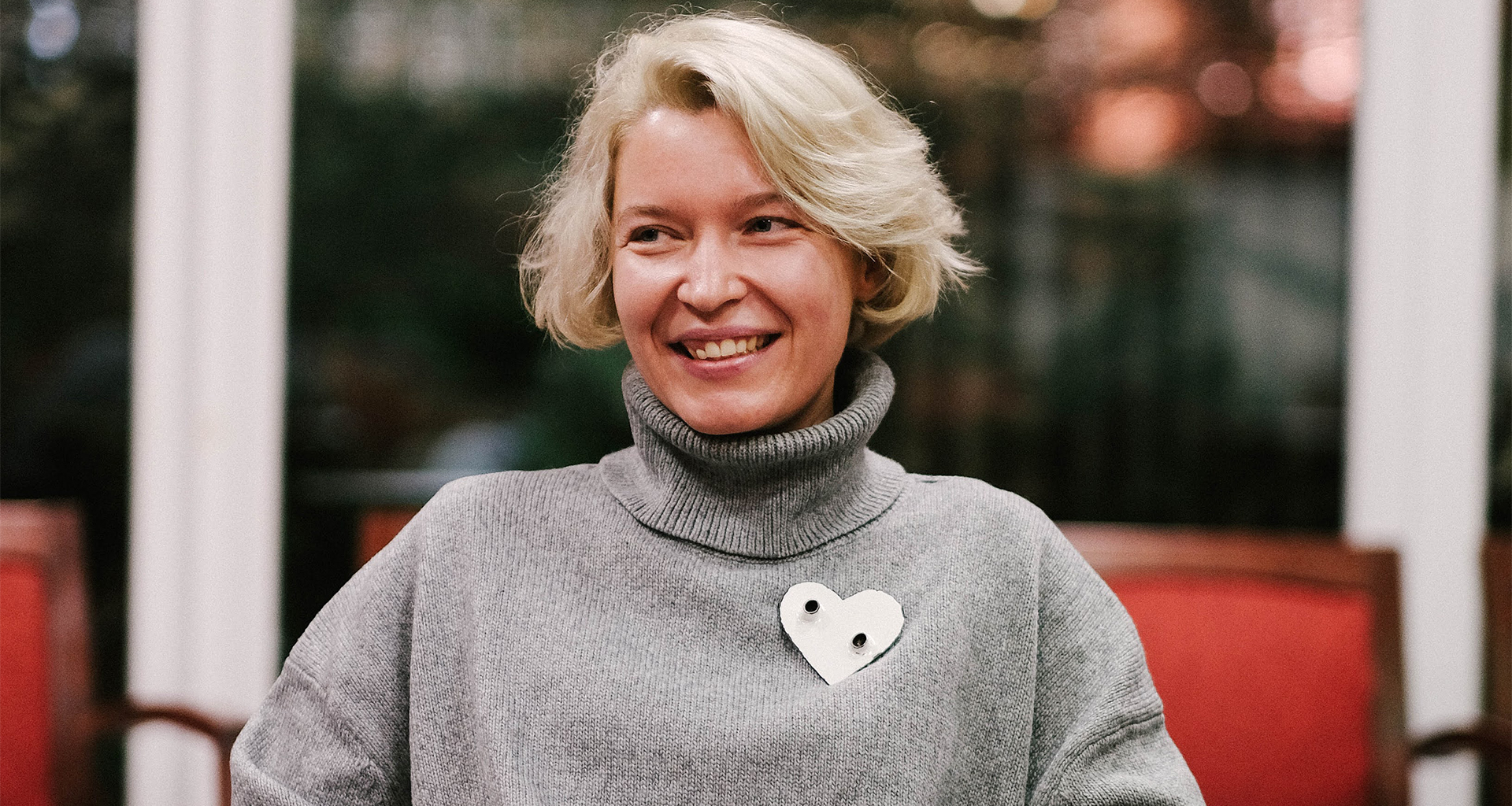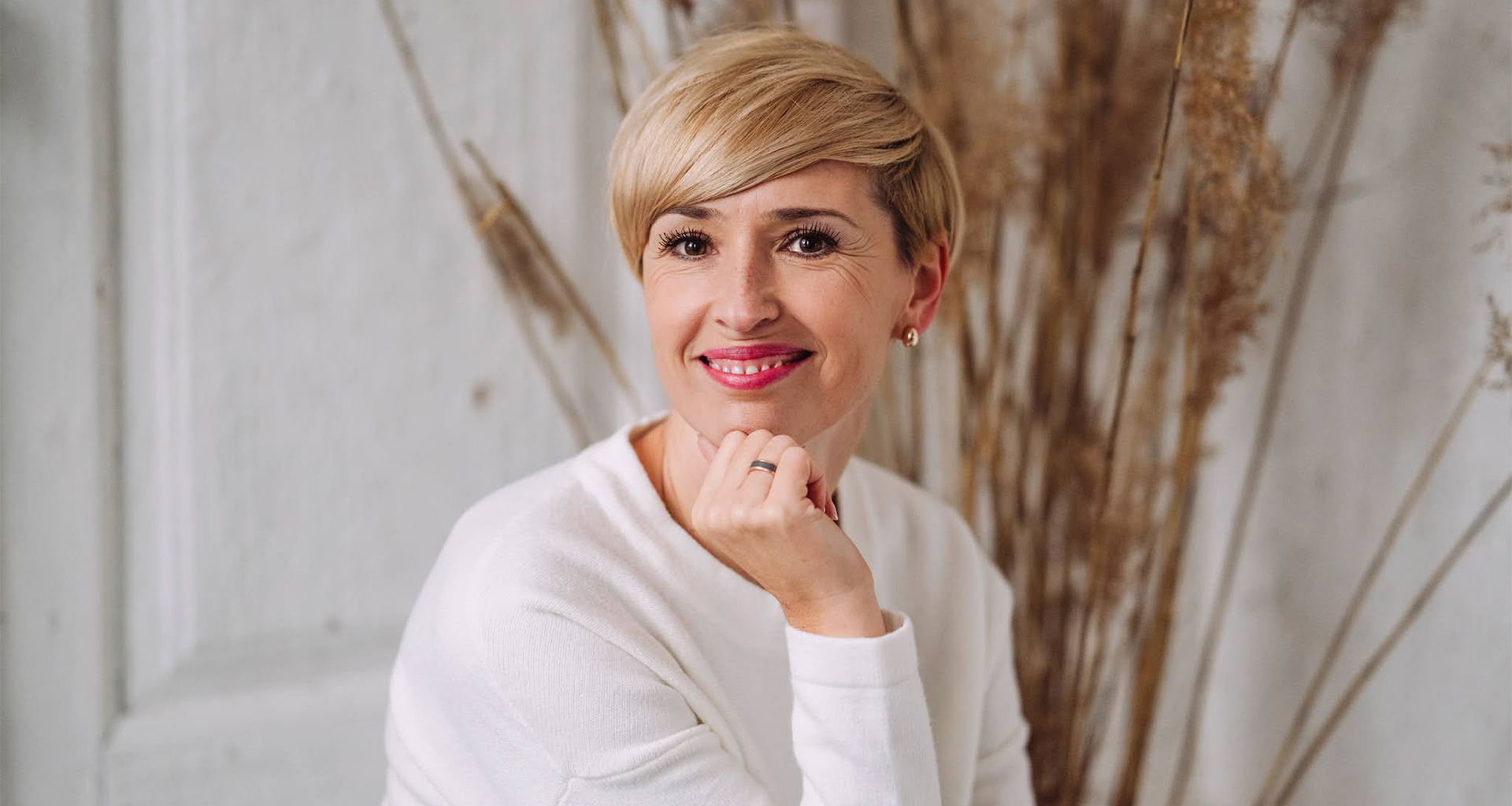Darja Rovba, a board member of a non-governmental organisation and a participant in our Language Friends programme, and her mentor, communication expert Maria Leis, shared with us their impressions of their spring cooperation.
What were the benefits of participating in the programme? What inspired you to get involved?
Darja: In my opinion, the most effective way to learn any language is primarily through oral language practice. This is also what the programme offered me. We all learned grammar, correct word usage, and sentence structure in school. This is undoubtedly important, but I think we should start from elsewhere. When I moved to Scotland and spent five years there, native speakers often commented how correct my use of language was. At first, this seemed surprising, but then I realised that such grammatically perfect forms are not used in everyday life, so in conversation I appeared like a ‘newly arrived girl’. Therefore, in my opinion, it is more effective to start language learning with simple spoken language and once these basic skills have been acquired, begin with grammar. The most important thing is to overcome the shyness and fear of speaking. It does not matter how many mistakes you make. The more you listen and use the language, the faster your sense of language will develop and you will begin to intuitively choose the right words and constructions. For me, the most valuable form of learning the language was engaging in lively conversations with native Estonian speakers. I feel more confident using Estonian now, relying less on English for word choice and self-expression.

Language Friend: Darja Rovba
Maria: I am an Estonian patriot and there is nothing more beautiful to me than dedicating some of my time to help even just one person in Estonia speak our national language even better. There were several important things that inspired me to get involved in the programme. First and foremost, language is intertwined with both the identity of my country and my own personal identity. It is an integral part of who I am, something I hold in high regard and deeply respect. I also believe that language is a part of who I am and how I express myself. So, I try to write and speak correctly, avoid foreign expressions, and use correct Estonian in my work. Second, it is important for me that other people around me speak good Estonian. It does not matter what nationality they are. Third, it was important for me to be able to contribute to the preservation of the Estonian language in general through this programme. According to the 2022 census, 84% of the Estonian population speaks Estonian: 67% as a first language and 17% as a foreign language. I very much hope that my contribution has increased the number of Estonian speakers.

Mentor: Maria Leis
What did you like most and what proved to be the main challenge?
Darja: I liked the format and flexibility of the programme. Maria and I could select a convenient time, adjust if needed, and either meet online or at a café (although we have not utilised the latter yet, it remains an option!). I have been very fortunate with my mentor because each conversation turned out to be unique and interesting. We discussed various philosophical and existential topics that were important to us at the time and made us reflect. Alternatively, we simply exchanged impressions from the past week. Maria is great to talk to. Actually, I cannot think of any challenges. I did not feel any pressure during our conversations; on the contrary, I felt curious, grateful, and inspired.
Maria: One positive aspect was that already in the first conversation, I realised that she is my kind of person, so to speak. Darja and I share many interests, she has a good sense of humour, a wide vocabulary, and uses very interesting sentence structures to express herself. I can talk to her about anything. She has also broadened my worldview in several ways – we have talked about international relations, life for non-native speakers in Estonia, and so on. I was really lucky to meet such a pleasant and nice language learner in the programme. I think we have not had any difficult situations. It was only during the first conversation when we both were searching for topics to discuss and trying to get to know each other.
How often and how did you have conversations?
Darja: We mostly had conversations once a week. There were exceptions where a lesson was cancelled, but we made up for it when possible. I am very grateful to Maria for her openness, flexibility, time, readiness, and desire to continue our conversations even after the official deadline. I can confidently say that these conversations have already become part of my weekly schedule.
Why should other language learners participate in the programme?
Darja: It is worth participating in the programme because it is a good experience and an opportunity to improve your skills and find new values. Looking deeper, this programme is not just about practising the Estonian language but also about cultural exchange, mutual understanding, and pushing boundaries (if they exist), both internally and externally. We largely live in a world of conventions (there are no state borders in nature, a fox does not need an ID-card to cross the Latvian border, and rain falls equally on an engineer, a businessman, and a pie seller), and I am glad that programmes like the Language Friends programme help us break out of these conventions and bring our society closer together.
Why is it worthwhile for other Estonian speakers to participate as mentors?
Maria: I believe there are several reasons to participate in the programme as a mentor. First, if things go well, you might meet a very nice person and if things go even better, you might make a new friend, which otherwise can be quite difficult to achieve for someone in their 40s. :) Second, this programme allows you to enrich society with a very small contribution on your part – just one hour of your free time per week. Third, for me, there is the aspect of the Estonian language. Through this programme, I can promote the use of Estonian even more by encouraging my language partner to speak it. Last, and most important, I can genuinely help someone. The results of my efforts are audible and visible—my language partner has become much more confident in speaking Estonian and has significantly enriched their vocabulary from one meeting to the next. This is very important and gives me a very good feeling. I am sure there are many socially sensitive people among us for whom such an initiative, giving back to society, would bring joy to their hearts.
Will you continue your conversations with each other and if so, how, and do you plan to participate in the programme next season?
Darja: Yes, I definitely want to participate in the programme next season! I also shared the news with my friends and they are interested too.
Maria: I entered the programme with high expectations and lots of curiosity. The season is not over for us yet because we continue our weekly meetings. I will definitely participate in the programme next season as well.
The project receives support within project no. 2021-2027.4.07.23-0006 ‘Activities supporting Estonian language learning and civic education’, sub-activity No. 3.4.4.4 ‘Provision of various cultural and leisure activities to support Estonian language learning and practice’, financed by a grant of the European Social Fund+.
